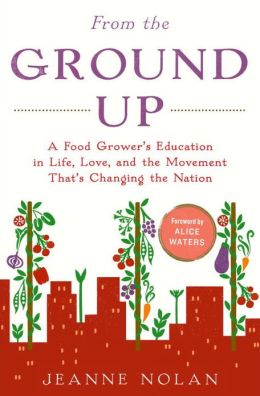Congressional posturing: House Republicans (No Democrats) pass farm bill without food stamps
Ordinarily, writing about bills introduced and passed in either the House or the Senate isn’t worth the trouble because they are so likely to be changed later on in the legislative process.
But this one is over the top. House Republicans, joined by not one Democrat, passed H.R. 2642 — New Federal Agriculture Reform and Risk Management Act of 2013 — its version of the farm bill yesterday. The shocker? For the first time since the 1970’s, the farm bill is not linked to food stamps (SNAP), thereby breaking the deal between urban and rural America.
This bill now has to be reconciled with the one passed by the Senate last year, which does include food stamps. This seems unlikely. The President has already said he won’t sign it (see the Obama administration’s statement of policy on H.R. 2642).
So this is about politics, not governing the country.
The House bill:
- Repeals the 1938 and 1949 permanent farm laws
- Makes Title I — the commodity title — permanent law, if the bill can make it through conference and get President Barack Obama’s signature.
- Allows virtually unlimited crop insurance subsidies and price guarantees.
- Maintains the highly unpopular (with sugar users) sugar tariff program.
- Authorizes about $200 billion to pay for all this over ten years.
- Saves $12 billion over 10 years, according to the Congressional Budget Office’s estimate (much less than the House claims).
- Expands subsidies for crop insurance to cotton, rice, peanuts, and vegetables (well, at least that)
- And, according to the New York Times, requires additional economic and scientific analyses before putting food safety laws into effect.
House Republicans know this bill isn’t going any further. Hence: politics. Their purpose? Leaving food stamps vulnerable to severe restrictions and budget cutting.
Joel Berg of the New York City Coalition Against Hunger issued this statement:
Today’s vote is the latest smoking gun that the House Majority isn’t truly interested in deficit reduction, they’re interested in supporting special interest groups over hungry Americans. The Farm Bill passed by the House of Representatives today is a disgrace and an embarrassment to the American people…Recent Farm Bills have represented the worst of American politics. It’s time to pass a Farm Bill that represents the best.
Good luck with that.
Addition, July 13: Gail Collins’ column in the Times on this fiasco is the best I’ve seen.
So the farm bill got divided…As Ron Nixon reported in The Times, the rate of error and fraud in the agricultural crop insurance program is significantly higher than in the food stamp program. Also, the agriculture part has a lot of eyebrow-raising provisions, like the $147 million a year in reparations we send to Brazil to make up for the fact that it won a World Trade Organization complaint about the market-distorting effects of our cotton subsidies.
And while food stamps go to poor people, most of the farm aid goes to wealthy corporations.
Addition, July 16: I forgot to post the New York Times editorial on the topic.
Now that coalition has been sundered, and the future of food stamps is threatened. If the program is not returned to the five-year farm bill, it will have to be financed through annual appropriations, which puts it at the mercy of the Republicans’ usual debt-ceiling stunts and government shutdown threats. House leaders said they would submit a food stamp bill “later,” but that will probably include the right wing’s savage cuts andunprecedented incentives for states to shut out poor families. Neither will get past the Senate or the White House.






